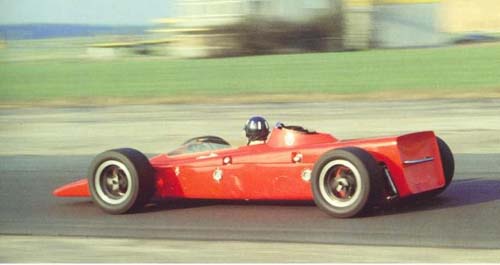You'd have a bit more than 350hp though

I know

. I was thinking that maybe I could de-stroke a 305 or 327, and run a very lightweight rotating assembly. The whole engine, with fuel injection, aluminum heads, electric water pump, no fan, etc etc, would come in around 460lbs/207kg or so, if my fuzzy math is right. That's not a
whole lot heavier than a turbo 4 banger, and it would sound like pure terror and hell fire!

Fatty!
Heh, I'm only about 5'10" and 160lbs. My reason for making it a little bigger would be so I could get in and out just a little easier, which would come in handy because a car like that would definitely get pulled over constantly. That doesn't make me want one any less though. As for actually building it: maybe in a few years. I did 3 semesters as an ME, was a member of KSU Formula SAE at that time, and I can still TIG weld like shit :lol: (I'm pretty handy with a MIG welder though.) I just need a garage and a stable income.
You mean like the Light Car Company Rocket?
Oh god, it burns the eyes! No, I'd build it myself, I want it to look like it came straight out of the pits in Daytona, 40 years ago.
I wouldn't want a 200kg+ engine in something so light, a bike engine would be a much better option, but if you insist on the look, a 90kg bike derived V8 would be a better fit.
That's great

. A 'busa V8 would
not be a better fit, because it doesn't look the part (at least not in my mind), and it doesn't sound the way I want. The weight is a moot point anyway. The engine will be sitting smack dab in the middle of the car, so its balance won't be upset. If anything, the extra weight will help make such a small, powerful car more predictable.
I think he is going for 1) not to expensive, 2) something that mimics some of the original Indy racers of the era and 3) it's an American tradition to shove an engine half the weight of the car (or more) into it's cramped engine bay. The losers usually ran production based v8's

Yes, yes and yes. And I don't mind being the loser; I can go down the street to NAPA and get parts :lol:. IF I was going to run a 4 cylinder, it would probably be normally aspirated for simplicity's sake. If I could really keep the weight down, I don't think a GM Quad 4 would be out of the question. They can even kind of be dressed up as Offys, so that would keep with the period look.









